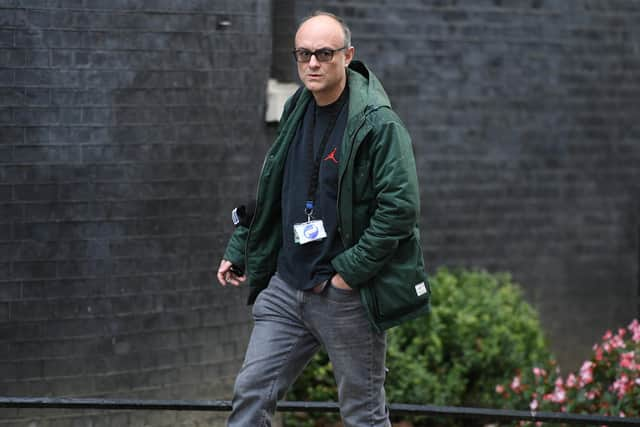How trust can be restored in politics by amplifying the voices of those who seek to represent their communities - Andy Brown
The low spots are pretty evenly shared between the larger political parties. Tony Blair told us all with a straight face and a very polished impression of sincerity that, as Prime Minister, he had seen such convincing evidence of weapons of mass destruction that we had to invade Iraq. It didn’t exactly help to build trust and confidence in our national leaders when it turned out that he sent us to war on the basis of a lie.
A little later the Liberal Democrats ran an excellent election campaign in which they absolutely guaranteed that in power they would cut tuition fees for students. They then entered a coalition and raised them by £6,000 a year.
Advertisement
Hide AdAdvertisement
Hide AdMore recently the Conservative government hasn’t exactly covered itself in glory on all occasions. Incidents like Dominic Cummings driving to Barnard Castle to test his eye sight or Matt Hancock conducting an affair whilst telling the rest of us to keep our social distance did huge damage. When that era was followed by the Liz Truss reckless dash for unfunded growth which pushed the costs of mortgages through the roof the favourite Conservative claim of providing strong and stable government that can be trusted to manage the economy became a mockery. There are, of course, plenty of good honest politicians in all political parties who are genuinely interested in serving the best interests of their voters and who care far more about the welfare of their local community than they do about party loyalty.


So how do we go about strengthening the hand of those who are trying to represent us for the best reasons and weakening the power of the professional spin doctors, the lobbyists and those who seem inclined to promote their own career at the expense of what they regard as the little people?
In my view there are a few simple principles that anyone in any party needs to stick to if we are to stand any chance of building public trust.
Politics is not football. You shouldn’t pick a team and support it right or wrong. Politics is about making the right choices for the community you are trying to represent and working with anyone else who is trying to do the same thing.
Advertisement
Hide AdAdvertisement
Hide AdNo one is always right. It ought to be fine to admit that you’ve made a mistake or to change your mind. Only a bigot never changes their opinion. Interviewers need to stop seeking to “expose” contradictions between what someone believes now and their past views. What matters is whether the ideas you currently believe are helpful.
It is fine to disagree with people in the same political party as you. An independent mind is usually worth listening to; a party mouthpiece rarely is.
It is also fine to agree with people in a different party. Recognising when others are right or compromising to get things done is a sign of a helpful ability to work with others not weakness.
Believing honestly in a cause is healthy. Blind faith in your convictions is very dangerous.
Advertisement
Hide AdAdvertisement
Hide AdSolid work on delivering real benefits for people and for the environment within which we live is what people want from their representatives.
Never consult people on their views unless you intend to listen to them and change your mind. Fake public consultations destroy trust.
Stop talking like a politician and try speaking like a normal person.
Admit it when you got it wrong or your party did badly. Try to work out how to do better next time instead of how to spin reality to your best advantage.
Advertisement
Hide AdAdvertisement
Hide AdIt is usually better to share power with others than to conduct bitter faction fights over which members of your own tribe will control an unfairly acquired majority.
Get rid of focus groups and don’t make policy on the basis of what opinion polls say people want today. Concentrate on what you honestly believe to be the right thing to do and try to persuade others.
Never listen to any professional lobbyist unless you also listen to someone who disagrees with them. The needs of ordinary people should be driving policy, not the people who can afford the best access to decision makers.
Ban political donations that exceed £1,000. There should never be a suspicion that a few wealthy donors are able to excessively influence decisions.
Advertisement
Hide AdAdvertisement
Hide AdNo doubt many readers will disagree with some of the ideas I’ve written above. Hopefully many will also recognise that some of them have genuine merits.
Andy Brown is the North Yorkshire Councillor for Aire Valley.